- Home
- Jack Higgins
Luciano's Luck Page 2
Luciano's Luck Read online
Page 2
The green baize door opened in the mirror behind him and the manservant came through. Carter turned. ‘The Contessa will see me?’
‘She would if she could, only she isn't here. We took her away three days ago.’ His right hand came up holding the Walther and now he was speaking in English. ‘The shotgun, Major Carter. On the floor, very gently, then turn, hands against the wall.’
Strange, but now that it had happened, this moment that he had always known would come one day, Carter was aware of a curious sensation of relief. He didn't even attempt to play Ciccio any more, but put down the lupara as instructed and turned to face the wall.
‘German?’ he asked.
‘I'm afraid so.’ A hand searched him expertly. ‘Shäfer. Geheimefeldpolizei. I was beginning to think you weren't coming.’ He stepped back and Carter turned to face him.
‘The Contessa?’
‘The Gestapo have her. They've been waiting for you in Bellona for three days now. I've just telephoned through from the kitchen. They'll be here in twenty minutes.’
‘I see,’ Carter said. ‘So what do we do now?’
‘We wait.’ Schäfer motioned him through into the dining room.
Carter paused, looking down at the open fire, steam rising from his damp clothes, and behind him Schäfer sat at the end of the long dining table, took out a pack of cigarettes, lit one, then pushed the pack along the table. Carter took one gratefully and when he struck the match, his fingers trembled slightly.
Schäfer said, ‘There's brandy on the sideboard. You look as if you could do with it.’
Carter went round the table and helped himself. The brandy was the local variety, raw and pungent, it burned as it went down and he coughed, struggling for breath. He poured himself another and turned to Schäfer.
‘What about you?’
‘Why not?’
Carter found another glass and moved to the table. ‘Say when,’ he said and started to pour.
Schäfer still covered him with the Walther. Raising the glass to his lips he said, ‘I'm sorry about this, Major. I don't like those Gestapo bastards any more than you do, but I've got a job to do.’
‘Haven't we all,’ Carter said.
He swung the decanter in an arc against the German's skull, at the same time grabbing for the wrist of the hand that held the Walther, desperately trying to deflect it.
He swung the decanter again so that it splintered into dozens of pieces, brandy spurting across Schäfer's head and face, mingling with the blood. Incredibly, Schäfer's left fist managed a punch of considerable force high on Carter's right cheek, splitting the flesh to the bone, before clutching him by the throat.
They fell across the table and rolled over the edge to the floor and Carter was aware of one blow after another to the body and the pistol exploding between them. Somehow, he found himself up on one knee, twisting the other's wrist up and around until the bone cracked and the Walther jumped into the air, landing in the hearth.
The German screamed, his head going back, and Carter punched him in the open throat with knuckles extended. Schäfer rolled over on to his face and lay still and Carter turned and ran into the hall. He grabbed for the shotgun, slinging it over his shoulder as he made for the front door.
There was a dreamlike quality to everything. It was as if he was moving in slow motion, no strength to him, so that even opening the front door was an effort. He leaned against the balustrade of the porch, aware now that the front of his jacket was soaked with blood, not Schäfer's but his own. When he slipped a hand inside his shirt he could feel the lips of the wound like raw meat where a bullet had ripped through his left side.
No time for that, not now for he was aware of the sound of vehicles approaching on the road, very fast. He went lurching down the steps, picked up the bicycle and hurriedly retraced his steps through the garden to the rear gate.
He reached the shelter of the pine trees below the villa, turned in time to see a truck and two kubelwagens appear on the main road above him. Carter didn't wait to see what would happen, simply pushed on through the trees until he came to the woodcutter's track that ran all the way down through the forest to Bellona. Just enough light to see by if he was lucky. He flung a leg over the broken leather saddle of the old bicycle and rode away.
There wasn't a great deal to remember of that ride. The trees crowding in on either side, deepening the evening gloom, the rush of the heavy rain. It was rather like being on the kind of monumental drunk where, afterwards, only occasional images surface.
He opened his eyes to find himself lying on his back, the rain falling on his upturned face, in a ditch on the edge of the village, the bicycle beside him.
The pain of the gunshot wound was intense now, worse than he would have believed possible. There was no sign of the shotgun and he forced himself to his feet and stumbled along the track through the swiftly falling darkness.
The smell of wood smoke hung on the damp air and a dog barked hollowly in the distance, but otherwise there was no sign of life except for the occasional light in a window. And yet there were people up there, watching from behind the shutters, waiting.
He made it across the main square, pausing at the fountain in the centre to put his head under the jet of cold water that gushed from the mouth and nostrils of a bronze dryad, continued past the church and turned into a narrow side street. There was an entrance to a courtyard a few houses along, barred by an oaken gate, a blue lamp above it. The sign painted on the wall in ornate black letters read Vito Barbera Mortician.
A small judas gate stood next to the main door. Carter leaned against it and pulled the bell chain. There was silence for a while and he held on to the grille with one hand, staring up at the rain falling in a silver spray through the lamplight. A footstep sounded inside and the grille opened.
Barbera said, ‘What is it?’
‘Me, Vito.’
‘Harry, is that you?’ Barbera said, this time in the kind of English that came straight from the Bronx. ‘Thank God. I thought they must have lifted you.’
He opened the judas gate and Carter stepped inside. ‘A damn nearrun thing, Vito, just like Waterloo,’ he said and fainted.
Carter surfaced slowly and found himself looking up at a cracked plaster ceiling. It was very cold and there was a heavy, medicinal smell to everything that he soon recognized as formaldehyde. He was lying on one of the tables in the mortuary preparation room, his neck pillowed on a wooden block, his stomach and chest expertly bandaged.
He turned his head and found Barbera, wearing a long rubber apron, working on the corpse of an old man at the next table. Carter pushed himself up.
Barbera said cheerfully, ‘I wouldn't if I were you. He shot you twice. The one in the side went straight through, but the second is somewhere in the left lung. You'll need a top surgeon.’
‘Thanks a million,’ Carter said. ‘That really does make me feel a whole lot better.’
On the trolley beside Barbera were the tools of the embalmer's trade laid out neatly on a white cloth: forceps, scalpels, surgical needles, artery tubes and a glass jar containing a couple of gallons of embalming fluid.
There was a look of faint surprise on the corpse's face that many people show in death, jaw dropped, mouth gaping as if in astonishment that this could be happening. Barbera took a long curved needle and passed it from behind the lower lip, up through the nasal septum and down again so that when he tightened the thread and tied it off, the jaw was lifted.
‘So you raise people from the dead, too?’ Carter eased himself off the table. ‘I always knew you were a man of parts.’
Barbera smiled, a small, intenselooking man of fifty whose tangled irongrey beard appeared strangely at odds with the Bronx accent.
‘You fucking English, Harry! I mean, when are you going to learn? The days of Empire are over. What were you trying to do up there, win the war on your own?’
‘Something like that.’
The door opened and a young girl
entered. Sixteen or seventeen, no more. Small, darkhaired with a ripe, full body that strained at the seams of the old cotton dress. She had a wide mouth, dark brown eyes in a face of considerable character and yet there was the impression of one who had seen too much of life at its worst too early.
She carried a tray containing an old brass coffee pot, brown sugar and glasses. There was also a bottle of cognac Courvoisier.
Barbera carried on working. ‘Rosa, this is Major Carter. My niece, arrived from Palermo since you were last here.’
‘Rosa,’ Carter said.
She poured coffee and handed it to him without a word.
Barbera said, ‘Good girl. Now go back to the gate and watch the square. Anything anything at all, you let me know.’
She went out and Carter poured himself a brandy, sipping it slowly for the pain in his lung was so intense that he could hardly breathe. ‘I never knew you had a niece. How old is she?’
‘Oh, a hundred and fifty, or sixteen. Take your pick. Her father was my youngest brother. Killed in an auto accident in thirtyseven in Naples. I lost sight of his wife. She died of consumption in Palermo three years ago.’
‘And Rosa?’
‘I only heard about her two months ago through Mafia friends in Palermo. She's been a street whore since she was thirteen. I figured it was time she came home.’
‘You still think of this place as home after Tenth Avenue?’
‘Oh, sure, no regrets. Something Rosa can't understand. New York is still the promised land to her, whereas to me, it was somewhere to leave.’
He was working cream into the old man's face now, touching the cheeks with rouge.
Carter said, ‘What about the Contessa?’
‘The Gestapo took her to Palermo.’
‘Bad for you if they break her.’
‘Not possible.’ Barbera shook his head. ‘A friend passed her a cyanide capsule in the women's prison yesterday afternoon.’
Carter took a long, shuddering breath to steady his nerves. ‘I was hoping she'd have news for me of Luca.’
Barbera paused and glanced at him in some surprise. ‘You waste your time. No one has news of Luca because that is the way he wants it.’
‘Mafia again?’
‘Yes, my friend, Mafia again and you would do well to remember that. What are your plans?’
‘I was supposed to go to Agrigento tonight. I'm due to put to sea with a tuna boat out of Porto Stefano at midnight.’
‘Submarine pickup?’
‘That's it.’
Barbera frowned thoughtfully. ‘I don't see how, Harry, not tonight. The roads will be crawling with Krauts. Maybe tomorrow.’ He gestured to the corpse. ‘I've got to take the old boy here down to Agrigento anyway.’
Before Carter could reply, the door burst open and Rosa looked in. They are here in the square. Many Germans.’ Barbera moved to the window and parted the curtain slightly. Carter struggled up with difficulty and limped to join him. Several vehicles had pulled up in the square, kubelwagens and troop carriers and two armoured cars. Soldiers had gathered in a semicircle and were being addressed from the back of a field car by an officer.
Carter said, ‘SS paratroopers. Where in the hell did they come from?’
‘The mainland last month. Specially selected by Kesselring to clear the mountains of partisans. The one doing the talking is their commanding officer, Major Koenig. He's good. They call him the Hunter in the Cammarata.’
As they watched, the SS broke away to commence searching the village. Koenig sat down and his kubelwagen started across the square, followed by another.
Barbera closed the curtain. ‘Looks as if he's coming this way.’ He turned to Carter. ‘Did you leave anybody dead up there at the villa, by any chance?’
‘Probably.’ Carter caught him by the sleeve. ‘He'll take it out on the village if I don't turn up.’
Barbera smiled sadly. ‘Not his style. Very definitely a man of honour. Makes it difficult to stick a knife in his back. Now you stay here with Rosa and keep quiet.’
He took the lamp and went out, leaving them in darkness.
They were already knocking at the outer gate as he crossed the courtyard. He eased back the massive bolt and the gate swung open to reveal the first kubelwagen, Koenig seated beside the driver. He got out and moved forward.
‘Ah, there you are, Signor Barbera. I've brought some custom for you, I'm afraid;’ he said in fair Italian.
The two kubelwagens drove into the courtyard. Barbera saw that there was a body strapped to a stretcher on one of them and covered with a blanket.
Two SS ran round to lift it down and Barbera said, ‘If you'd follow me, Major.’
He crossed the courtyard and led the way in through a short passage. When he opened the door at the end, there was the taint of death on the air.
The room which he entered was quiet, a single oil lamp on a table in the centre the only light. It was a waiting mortuary of a type common in Sicily. There were at least a dozen coffins, each one open and containing a corpse, fingers entwined in a pulley arrangement that stretched overhead to an old brass bell by the door.
Koenig entered behind him. His NCO's field cap was an affectation of some of the old timers, silver death's head badge glinting in the lamplight. The scarlet and black ribbon of the Knight's Cross made a brave show at his throat. He wore a leather greatcoat which had seen long service and paratroopers’ jumpboots. He lit a cigarette, pausing just inside the door, and flicked a finger against the bell which echoed eerily.
‘Has it ever rung?’
‘Frequently,’ Barbera said. ‘Limbs behave strangely as they stiffen in death. If what the Major means is has anyone returned to life, that, too. A girl of twelve and on another occasion, a man of forty. Both revived after death had been pronounced. That, after all, is the purpose of these places.’
‘You Sicilians seem to me to have an excessive preoccupation with death,’ Koenig said.
‘Not to the extent that we are excited by the idea of being buried alive.’
From the preparation room, peering through the crack in the door, Carter leaned against Rosa, fighting the pain, and watched them place the stretcher on a table and uncover Schäfer, the feldpolizei sergeant. The face was streaked with blood, the eyes staring. Barbera closed them with a practised movement.
‘Sergeant Schäfer was a good man,’ Koenig said. ‘I need hardly point out that it would be most unfortunate for anyone found harbouring the man who did this.’
Barbera said, ‘What would you like me to do with him, Major?’
‘Clean him up and deliver him to Geheimefeldpolizei headquarters in Agrigento.’
Barbera covered Schäfer with the blanket again. ‘I have a previous engagement tomorrow. The family of the Contessa di Bellona wish me to fetch her body from the women's prison in Palermo. A matter of some delicacy.’
‘Understandably,’ Koenig said.
‘In the circumstances, I had intended taking another corpse down to Agrigento tonight. See, in here.’
He moved to the door of the preparation room, opened it and led the way in, holding the lamp high so that Koenig could see the corpse of the old man. In the darkness of the rear cupboard, Carter slumped against Rosa and her arms tightened about him.
‘I could take Sergeant Schäfer at the same time,’ Barbera said. ‘Of course, I would need a pass, Major. I presume your men will be active on all roads tonight.’
He followed Koenig out and Carter waited there in the dark, the pain in his lung like a living thing. God, he thought, perhaps I'm dying. He clutched desperately at the girl as if she was life itself, conscious of the softness of her flesh, her breasts tight against him.
He groaned, struggling to control the pain, and she fastened her mouth over his as if to hold the sound in, her tongue working furiously. In spite of the agony, his flesh reacted to her practised hands.
After a while she opened the door cautiously and led him out. Carter propped himself
against one of the tables, aware of the sound of vehicles driving away down there in the courtyard.
‘What were you trying to do, kill me or cure me?’ he croaked.
She wiped sweat from his face with one of Barbera's towels. ‘We have a saying, Colonel. There is the big depth and then there is the small death which may be repeated many times. Which would you prefer?’
He stared down into that oldyoung face, but before he could reply Barbera came back, holding a piece of paper.
‘Signed by Major Koenig himself. Good for any road block between here and Agrigento. With luck, you should make that submarine after all.’
‘How?’ Carter said.
‘I wouldn't dream of having a hearse without a hidden compartment. Comes in handy. Of course, you'll be lying flat on your back with two corpses in coffins just inches above your nose, but I can guarantee you won't smell a thing.’ He grinned. ‘Stick with me, old buddy and you'll live for ever.’
3
The JU52 which flew in from Rome with Field Marshal Albert Kesselring landed at the Luftwaffe base at Punta Raisi outside Palermo just after nine in the morning. An hour later, he was at German Army headquarters in the old Benedictine Monastery near Monte Pellegrino, drinking coffee in the office of Major General Karl Walther who was temporarily in command.
‘Beautiful,’ Kesselring said, indicating the view. ‘Quite remarkable, and so is the coffee.’
‘Yemeni mocha.’ Walther poured him another cup. ‘We still manage some of the finer things in life here.’
‘We had some difficulty driving through the town. There seemed to be religious processions everywhere.’
‘Some sort of holy week. They hold them all the time. Everything grinds to a halt. They're a very religious people.’
‘So it would appear,’ Kesselring said. ‘When one of the processions passed us I noticed a rather unusual feature. The Image of the Virgin they were carrying had a knife through its heart.’

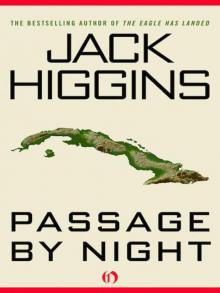 Passage by Night (v5)
Passage by Night (v5)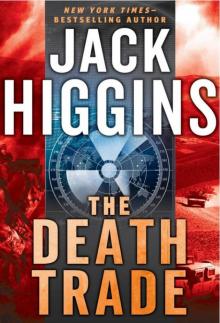 The Death Trade sd-20
The Death Trade sd-20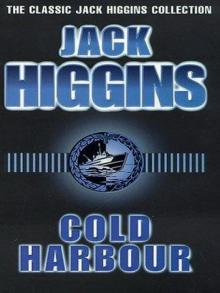 Cold Harbour
Cold Harbour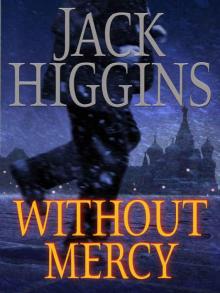 Without Mercy
Without Mercy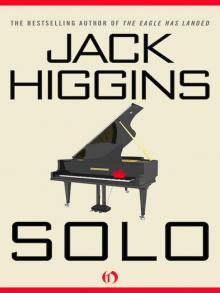 Solo (Aka the Cretan Lover)(1980)
Solo (Aka the Cretan Lover)(1980) First Strike
First Strike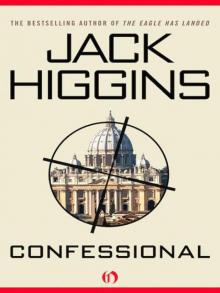 Confessional - Devlin 03 (v5)
Confessional - Devlin 03 (v5)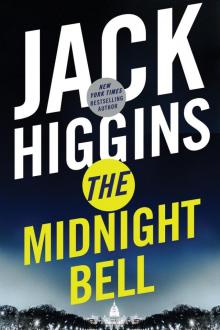 The Midnight Bell
The Midnight Bell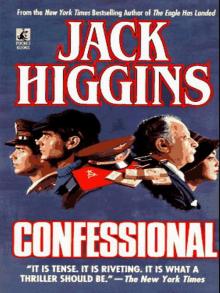 Confessional
Confessional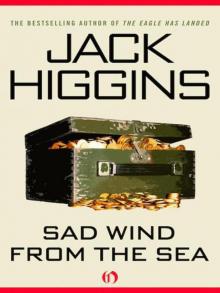 Sad Wind from the Sea (v5)
Sad Wind from the Sea (v5)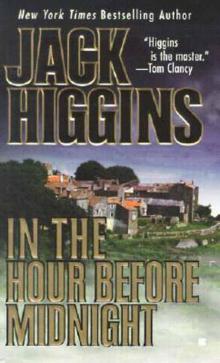 In The Hour Before Midnight aka The Sicilian Heritage
In The Hour Before Midnight aka The Sicilian Heritage Wrath of the Lion
Wrath of the Lion SDillon 20 - The Death Trade
SDillon 20 - The Death Trade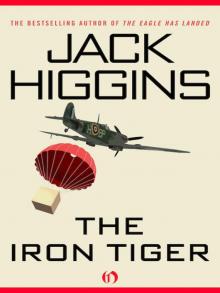 the Iron Tiger (1974)
the Iron Tiger (1974)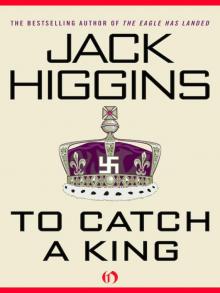 To Catch a King
To Catch a King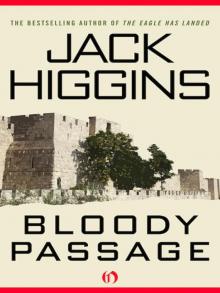 Bloody Passage (1999)
Bloody Passage (1999) Wrath of the Lion sd-8
Wrath of the Lion sd-8 Sharp Shot
Sharp Shot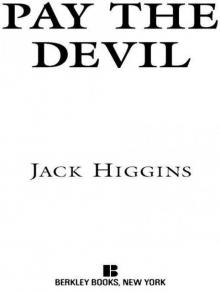 Pay the Devil (v5)
Pay the Devil (v5) A Devil Is Waiting
A Devil Is Waiting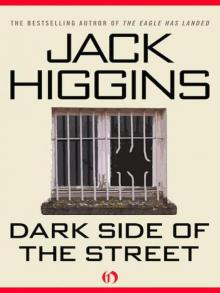 Dark Side of the Street - Simon Vaughn 01 (v5)
Dark Side of the Street - Simon Vaughn 01 (v5)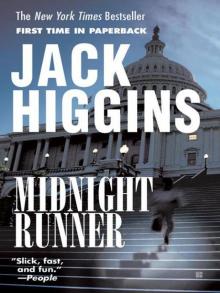 Midnight Runner - Sean Dillon 10
Midnight Runner - Sean Dillon 10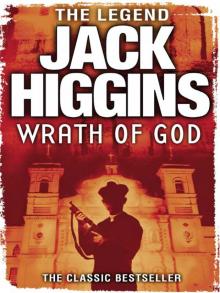 Wrath of God
Wrath of God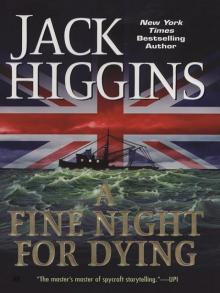 A Fine Night for Dying
A Fine Night for Dying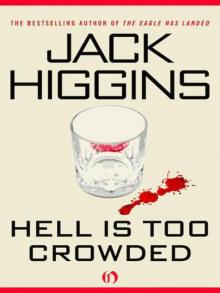 Hell Is Too Crowded v5)
Hell Is Too Crowded v5)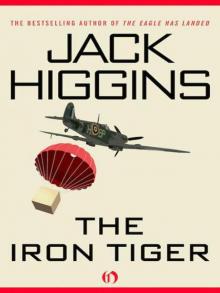 the Iron Tiger (v5)
the Iron Tiger (v5)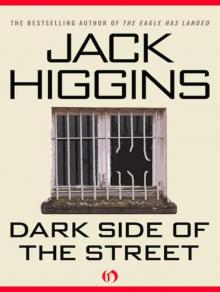 Dark Side of the Street pc-5
Dark Side of the Street pc-5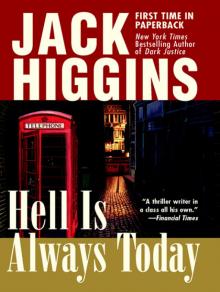 Hell Is Always Today
Hell Is Always Today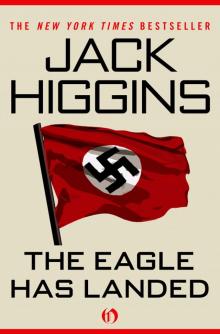 Eagle Has Landed
Eagle Has Landed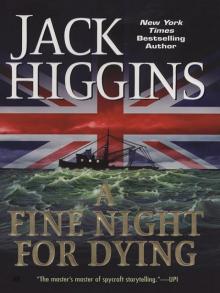 A Fine Night for Dying pc-6
A Fine Night for Dying pc-6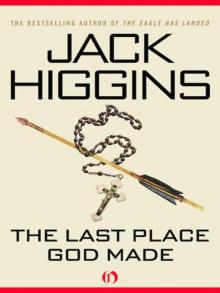 the Last Place God Made (v5)
the Last Place God Made (v5)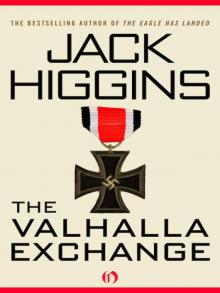 the Valhalla Exchange (1976)
the Valhalla Exchange (1976)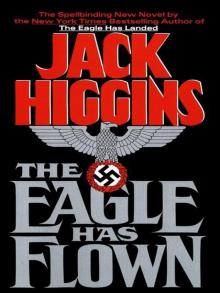 The Eagle Has Flown
The Eagle Has Flown Sure Fire
Sure Fire Pay the Devil (1999)
Pay the Devil (1999) Memoirs of a Dance Hall Romeo
Memoirs of a Dance Hall Romeo![a Prayer for the Dying (1974)[1] Read online](http://i1.bookreadfree.com/i1/04/02/a_prayer_for_the_dying_19741_preview.jpg) a Prayer for the Dying (1974)[1]
a Prayer for the Dying (1974)[1]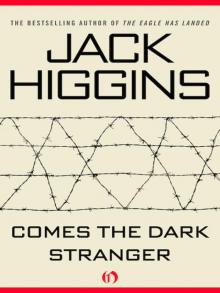 Comes the Dark Stranger
Comes the Dark Stranger Dark Side Of the Island (v5)
Dark Side Of the Island (v5)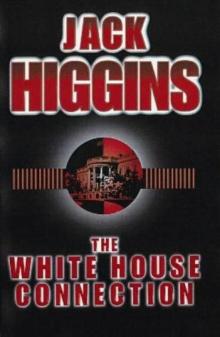 The White House Connection sd-7
The White House Connection sd-7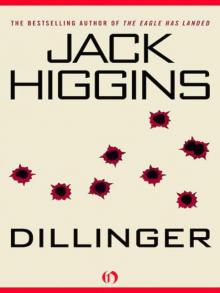 Dillinger (v5)
Dillinger (v5) Eye of the Storm
Eye of the Storm Eye Of The Storm aka Midnight Man
Eye Of The Storm aka Midnight Man A Darker Place
A Darker Place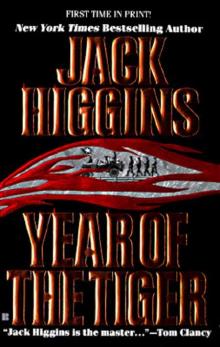 Year Of The Tiger
Year Of The Tiger Death Run
Death Run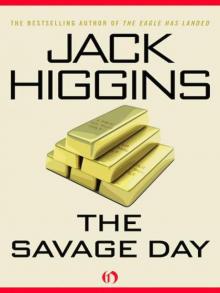 the Savage Day - Simon Vaughn 02 (v5)
the Savage Day - Simon Vaughn 02 (v5)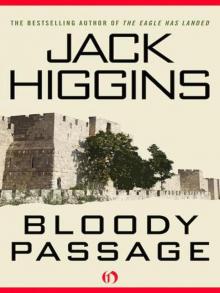 Bloody Passage (v5)
Bloody Passage (v5)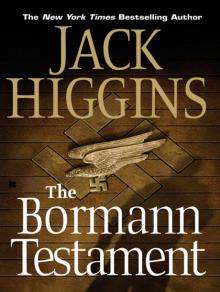 The Bormann Testament
The Bormann Testament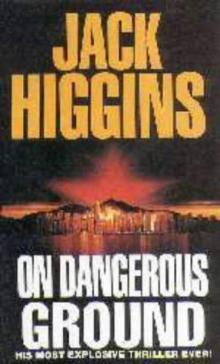 On dangerous ground sd-3
On dangerous ground sd-3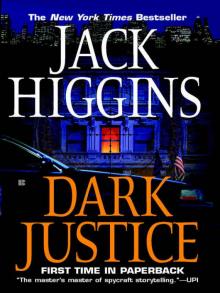 Dark Justice
Dark Justice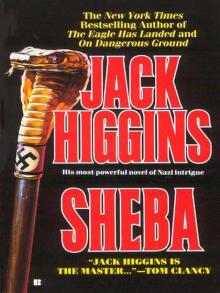 Sheba
Sheba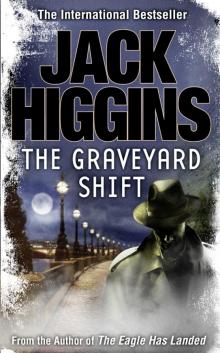 The Graveyard Shift
The Graveyard Shift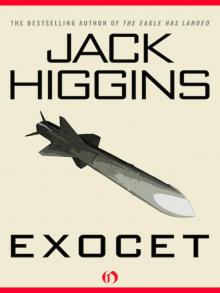 Exocet (1983)
Exocet (1983) The Wolf at the Door
The Wolf at the Door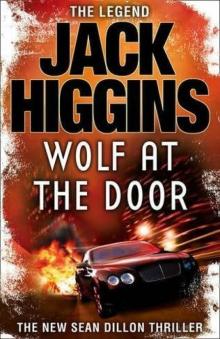 The wolf at the door sd-17
The wolf at the door sd-17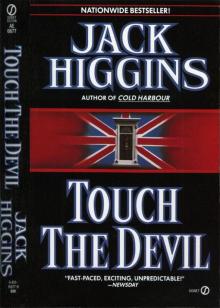 Touch The Devil
Touch The Devil The President’s Daughter
The President’s Daughter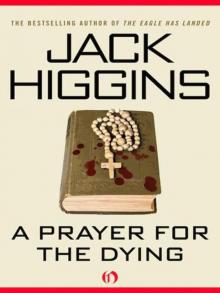 A Prayer for the Dying (v5)
A Prayer for the Dying (v5)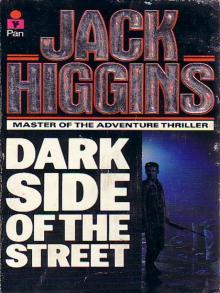 Dark Side Of The Street
Dark Side Of The Street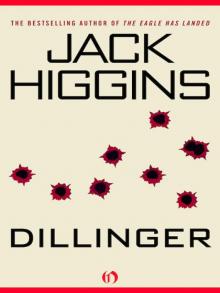 Dillinger (1983)
Dillinger (1983)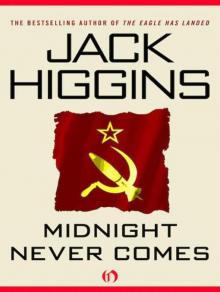 Midnight Never Comes pc-4
Midnight Never Comes pc-4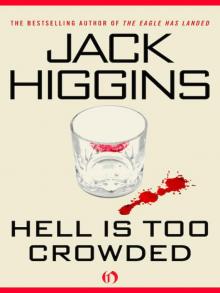 Hell Is Too Crowded (1991)
Hell Is Too Crowded (1991)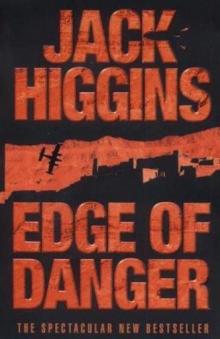 Edge of Danger sd-9
Edge of Danger sd-9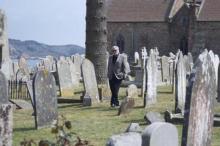 The Thousand Faces of Night (v5)
The Thousand Faces of Night (v5)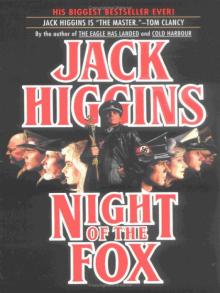 Night Of The Fox
Night Of The Fox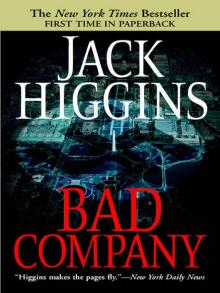 Bad Company
Bad Company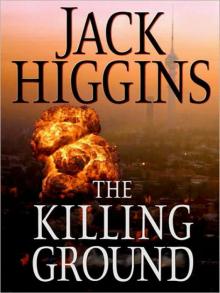 The Killing Ground
The Killing Ground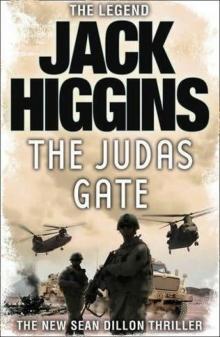 The Judas gate sd-18
The Judas gate sd-18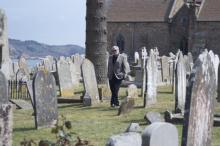 The Thousand Faces of Night (1961)
The Thousand Faces of Night (1961)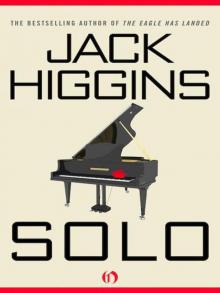 Solo (Aka the Cretan Lover) (v5)
Solo (Aka the Cretan Lover) (v5)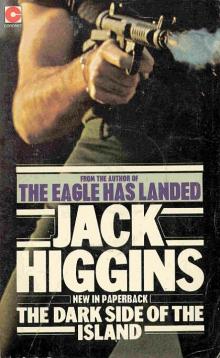 The Dark Side Of The Island
The Dark Side Of The Island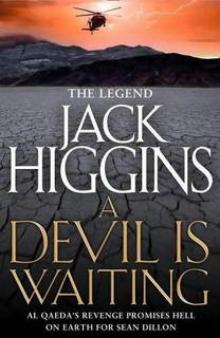 A Devil is vaiting sd-19
A Devil is vaiting sd-19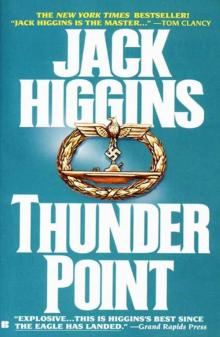 Thunder Point
Thunder Point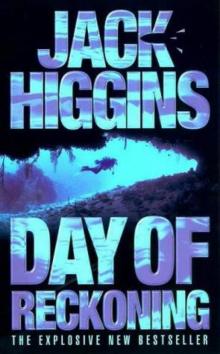 Day of Reckoning sd-8
Day of Reckoning sd-8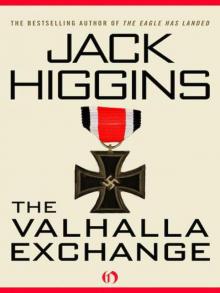 the Valhalla Exchange (v5)
the Valhalla Exchange (v5)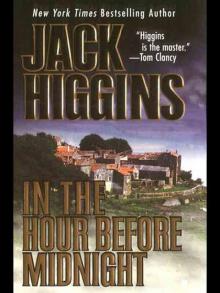 In the Hour Before Midnight
In the Hour Before Midnight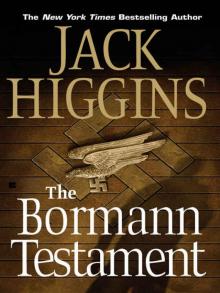 The Bormann Testament (The Testament of Caspar Schultz)
The Bormann Testament (The Testament of Caspar Schultz) The Judas Gate
The Judas Gate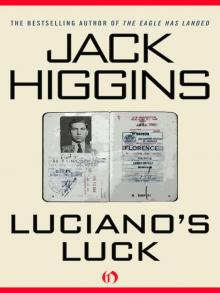 Luciano's Luck
Luciano's Luck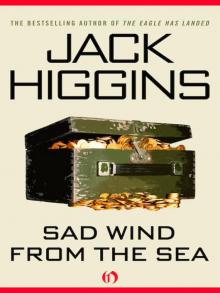 Sad Wind from the Sea (1959)
Sad Wind from the Sea (1959)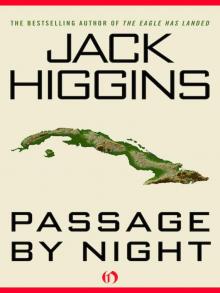 Passage by Night (1987)
Passage by Night (1987)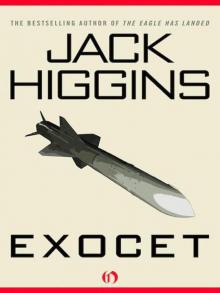 Exocet (v5)
Exocet (v5)